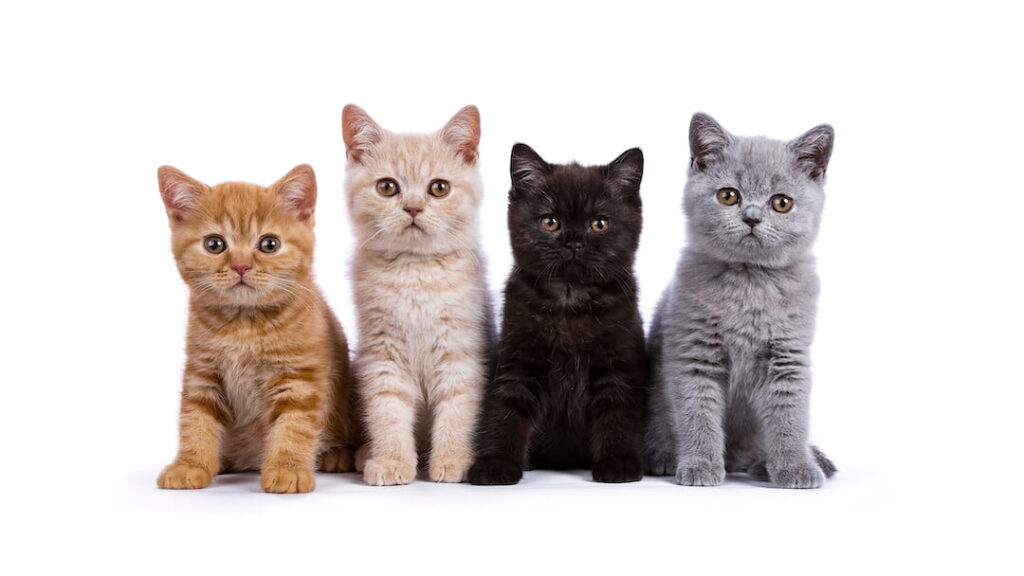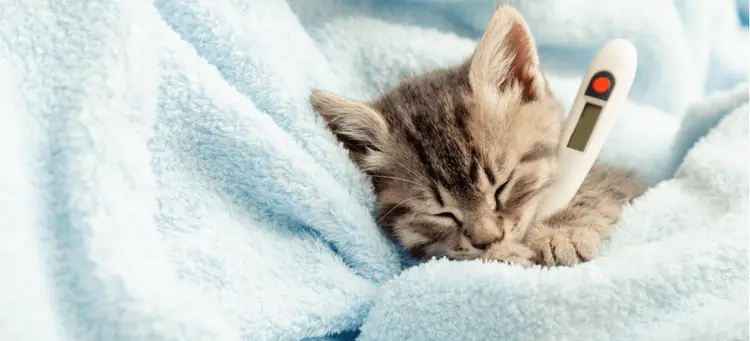
sick kitten Caring for a sick kitten can be a daunting experience for any cat lover. Knowing how to properly care for a young cat when they’re unwell is crucial. It starts with recognizing the signs of illness, understanding their nutritional needs, and providing general care at home. In this article, we’ll guide you through identifying symptoms of a sick kitten, feeding practices, and essential at-home care tips. Let’s begin with how to tell if your kitten is unwell.
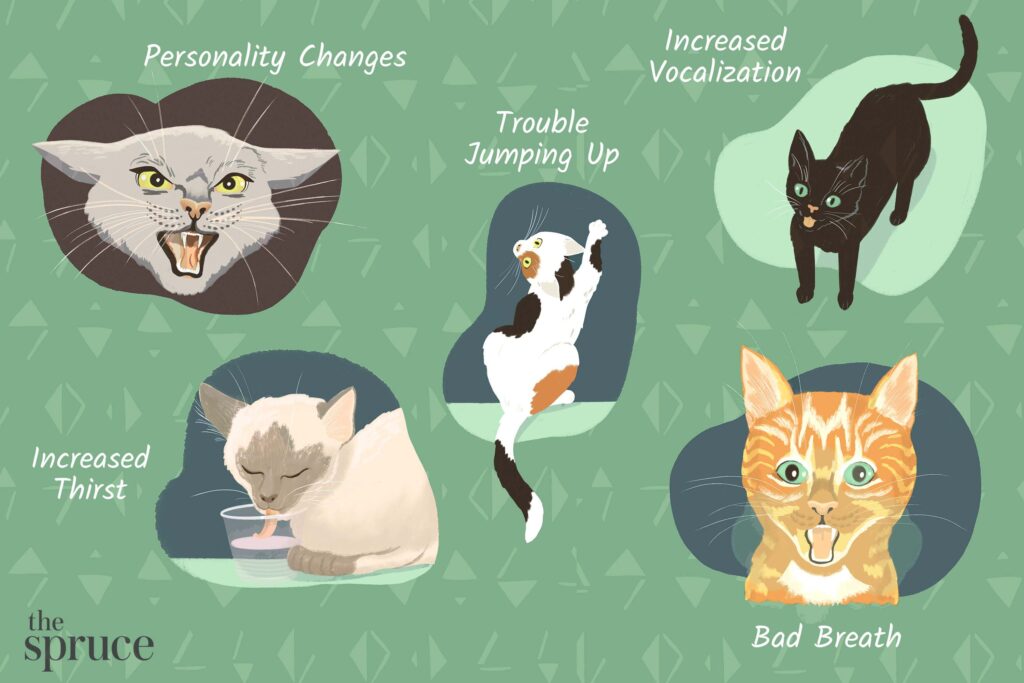
How to Tell If Your Kitten Is Sick
sick kitten Kittens can fall ill rapidly and for various reasons, including parasites, low blood sugar, and respiratory infections. Identifying a sick kitten involves recognizing several signs such as lethargy, weakness, loss of appetite, reduced interest in play, increased sleep, vomiting, diarrhea, weight loss, difficulty walking, and diminished interaction with their environment and companions.
sick kitten One of the earliest indicators of illness is a lack of appetite. If you have multiple cats, it can be hard to track who is eating. To monitor a sick kitten more effectively, veterinarians often recommend offering a small portion of canned food, which most cats find appealing. If your kitten refuses this, it’s a clear sign something may be wrong.
sick kitten Lethargy is another common symptom. Your kitten might be less responsive, show little interest in toys, or sleep significantly more than usual.
sick kitten Diagnosing illness in kittens can be challenging, as their condition can deteriorate quickly. It’s not uncommon for a kitten to go from active and healthy in the morning to severely ill within just a few hours.
sick kitten If you suspect your kitten is unwell, the best course of action is to consult your veterinarian for advice and schedule an appointment. If you’re worried about the costs of unexpected vet visits, click here to learn how pet insurance might help.
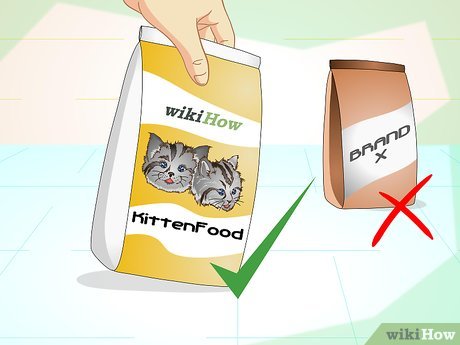
What to Feed a Sick Kitten
sick kitten Feeding a sick kitten requires attention to their age and nutritional needs. Depending on how young your kitten is, you might need to offer a milk replacement formula or high-quality canned or dry kitten food. Always ensure that fresh, clean water is available in a clean bowl, and consider placing multiple water bowls around to encourage drinking.
sick kitten The type of food you should provide varies with the kitten’s age. In the following sections, we’ll outline specific feeding guidelines for each stage of a kitten’s development to ensure they get the right nutrition for their needs.
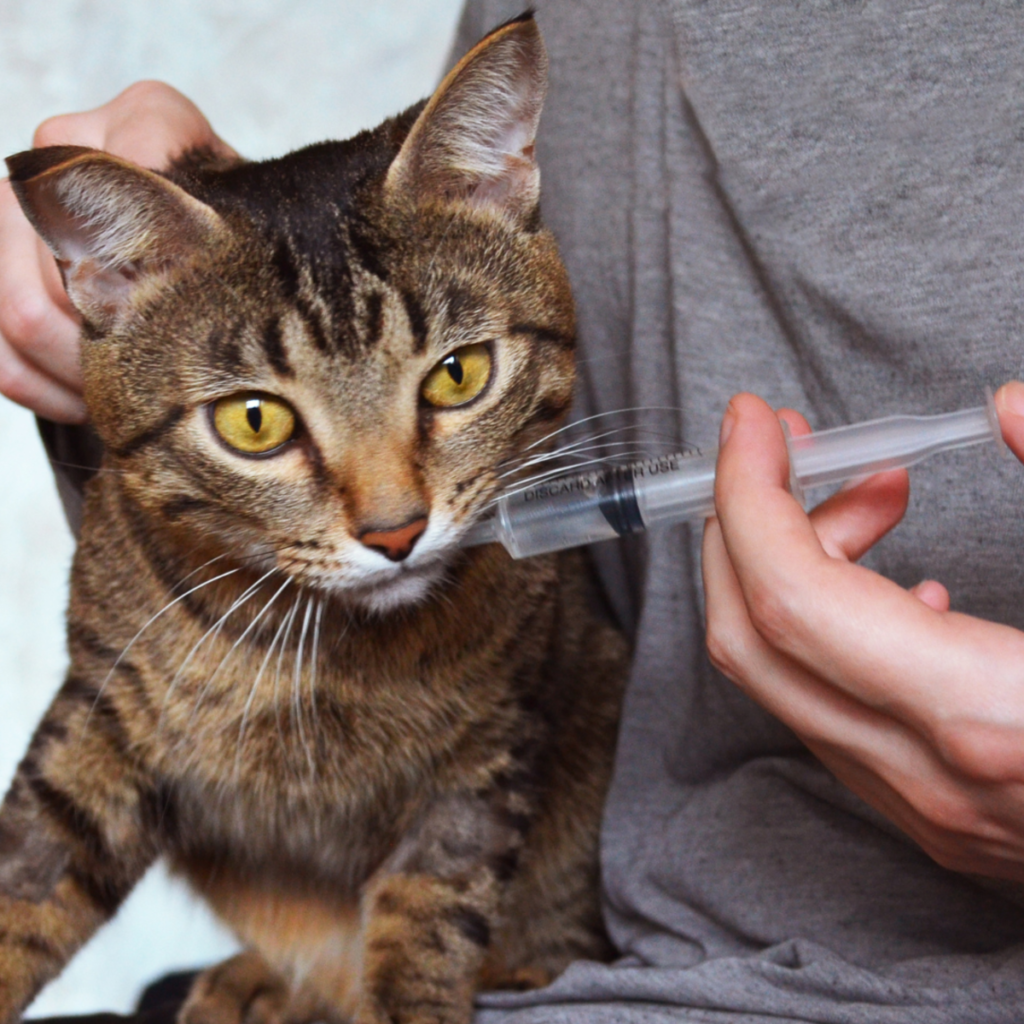
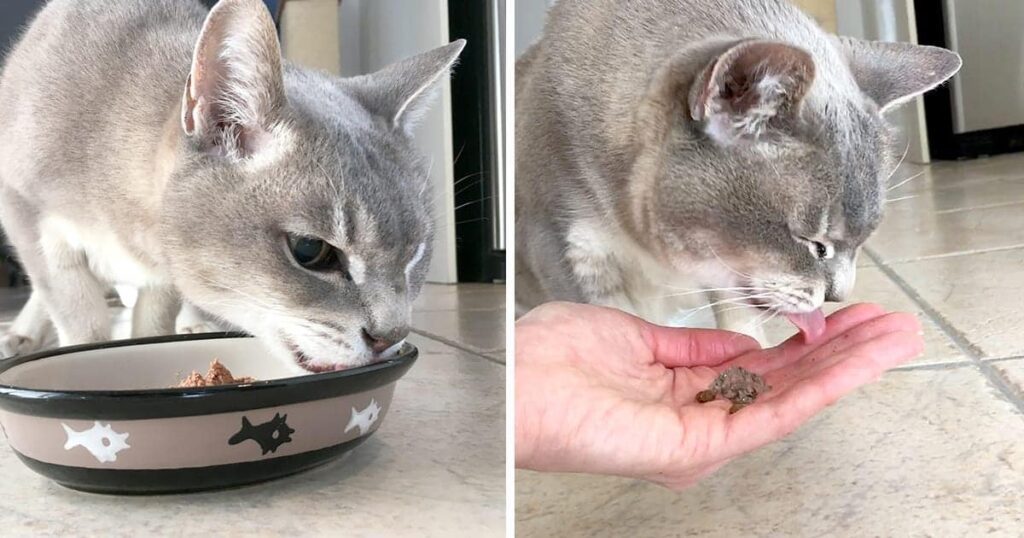
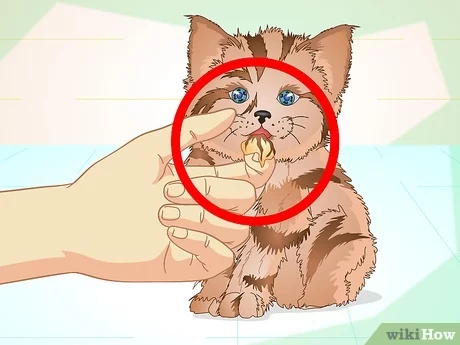
Tips for Feeding a Sick Kitten
sick kitten Convincing a sick and lethargic kitten to eat can be challenging. Here’s a general, age-based feeding protocol recommended by many veterinarians:
sick kitten **Birth to 4 Weeks**: At this age, kittens usually can’t handle solid food. You’ll need to offer a milk replacement formula, such as Kitten Milk Replacement (KMR), which is specially designed for kittens. Avoid using regular cow’s milk, as it can cause digestive issues. Heat the milk until it’s warm but not hot, place it in a kitten nursing bottle, and ensure it dribbles out slowly. Feed your kitten every 2–4 hours, depending on their age. If bottle feeding is not successful, tube feeding may be an alternative, where a tube is used to deliver milk directly into the kitten’s stomach.
**4 to 6 Weeks**: Kittens at this stage can start eating semi-moist food. You can mix crushed dry kitten food with KMR to create a gruel. Adjust the liquid content based on the kitten’s age and experience with solid food. Kittens closer to 6 weeks can handle a more solid mixture, while those at 5 weeks might need a softer blend.
**7 Weeks and Older**: By this age, kittens can usually eat canned or dry food. To encourage a sick kitten to eat, offer canned food warmed slightly to enhance its aroma. Brands like Fancy Feast are known for their appealing smells. Ensure your kitten’s nose is clear, as respiratory infections can affect their sense of smell and appetite. Offer small, frequent feedings of bland foods like Hill’s Prescription Diet Feline i/d or skinless boiled chicken. You might also try offering small amounts of canned tuna or chicken with natural juices. If necessary, hand-feed your kitten or use a syringe to administer softened food to stimulate their appetite.
sick kitten By following these guidelines, you can help ensure your kitten receives the necessary nutrition to support their recovery.
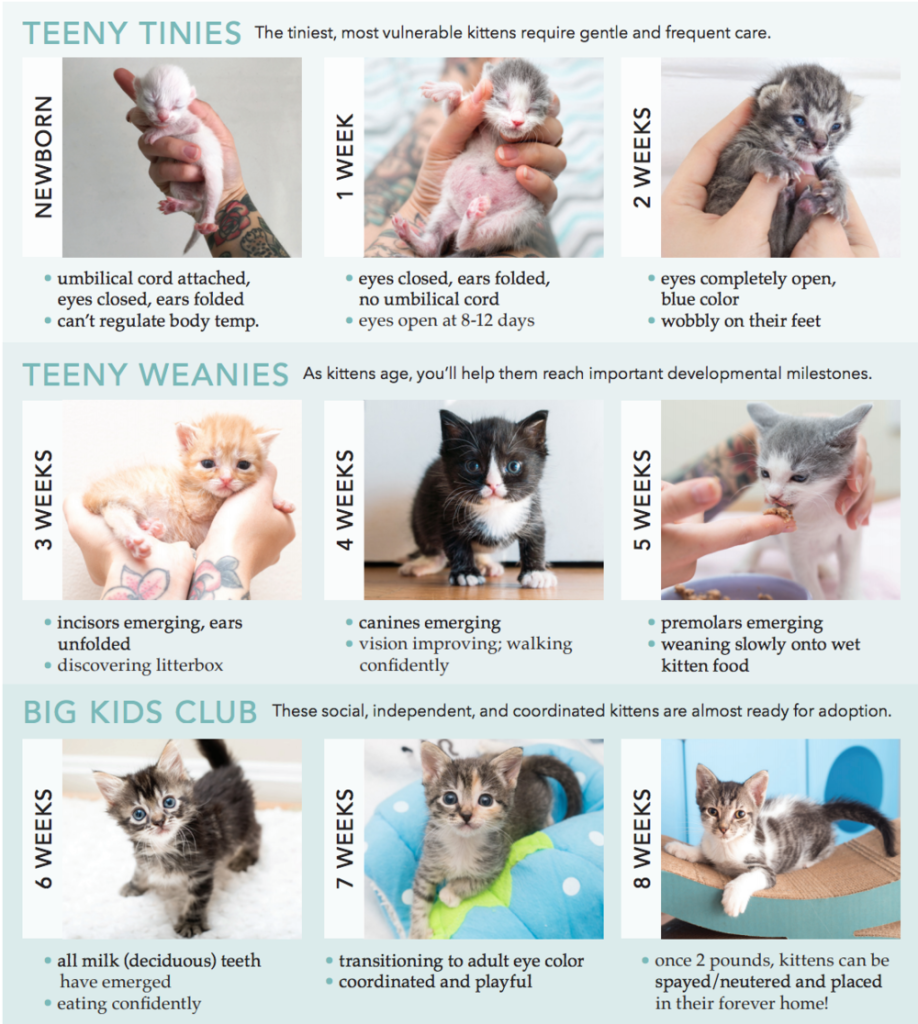
More Feeding Tips:
sick kitten Water can help soothe an upset stomach and stimulate appetite in kittens. To encourage your cat to drink, try adding extra water bowls, topping them off frequently, or using ice cubes or a water fountain. Some kittens enjoy drinking from running faucets or other sources of flowing water. You might also entice them with a few spoonfuls of tuna juice mixed with water.
Avoid overfeeding, as too much food can lead to vomiting, especially if the kitten’s stomach is upset. For a kitten weighing about 5 pounds, start with a small piece of meat, roughly one inch squared, cut into smaller pieces. If the kitten doesn’t vomit, you can offer another small portion about an hour later.
You might also try offering small amounts of chicken-flavored or other meat-based baby food, ensuring it’s free of harmful ingredients like onions and garlic.
Once your kitten starts eating again, gradually transition them back to their regular food over the course of one to two days. Start by mixing a small amount of their regular food with the bland diet, then gradually increase the proportion of regular food until you’re feeding them their usual diet. If your kitten stops eating again at any point, consult your veterinarian.
Keep a close eye on your sick kitten and keep them indoors until they have fully recovered.
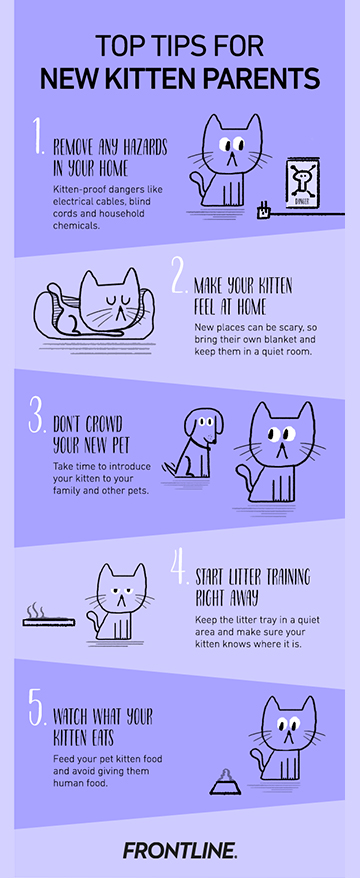
Kitten Home Care Tips
Caring for a sick kitten can be quite challenging, especially considering their varying needs depending on their age. Here are some tips tailored to different stages of kitten development:
**Newborn Kittens (Birth to 6 Weeks)**: Newborns are particularly delicate and require constant care. They may not be able to regulate their own temperature or stimulate bowel movements. Prepare with milk replacement formula, cotton balls, towels, and a reliable heat source. Newborns often seek warmth, so a clean blanket or pad in a medium-sized cardboard box with a heating pad underneath can help. After each feeding, stimulate the kitten’s genital area with a warm, wet cotton ball to encourage urination and defecation. Ask your veterinarian to demonstrate these techniques if needed.
**Pediatric Kittens (6 Weeks to 6 Months)**: As kittens grow, their care needs become more complex. At this stage, a crate or kennel is often necessary to contain them and monitor their output, which can include significant amounts of urine, feces, and vomit. To manage their care and protect your home, confine the kitten to an area that is easy to clean and place a litter pan nearby, scooping it frequently.
**Young Adult Kittens (6 Months to 1 Year)**: Kittens in this age range are treated similarly to young adult cats. They need to be confined to monitor and manage their care effectively. Ensure their bedding is kept clean, monitor their temperature, and provide heat support if necessary. Use the previously mentioned tips to encourage eating and drinking, and maintain a clean, accessible litter box for their needs.
By tailoring your care approach to the kitten’s age and condition, you can provide the best support during their recovery.

